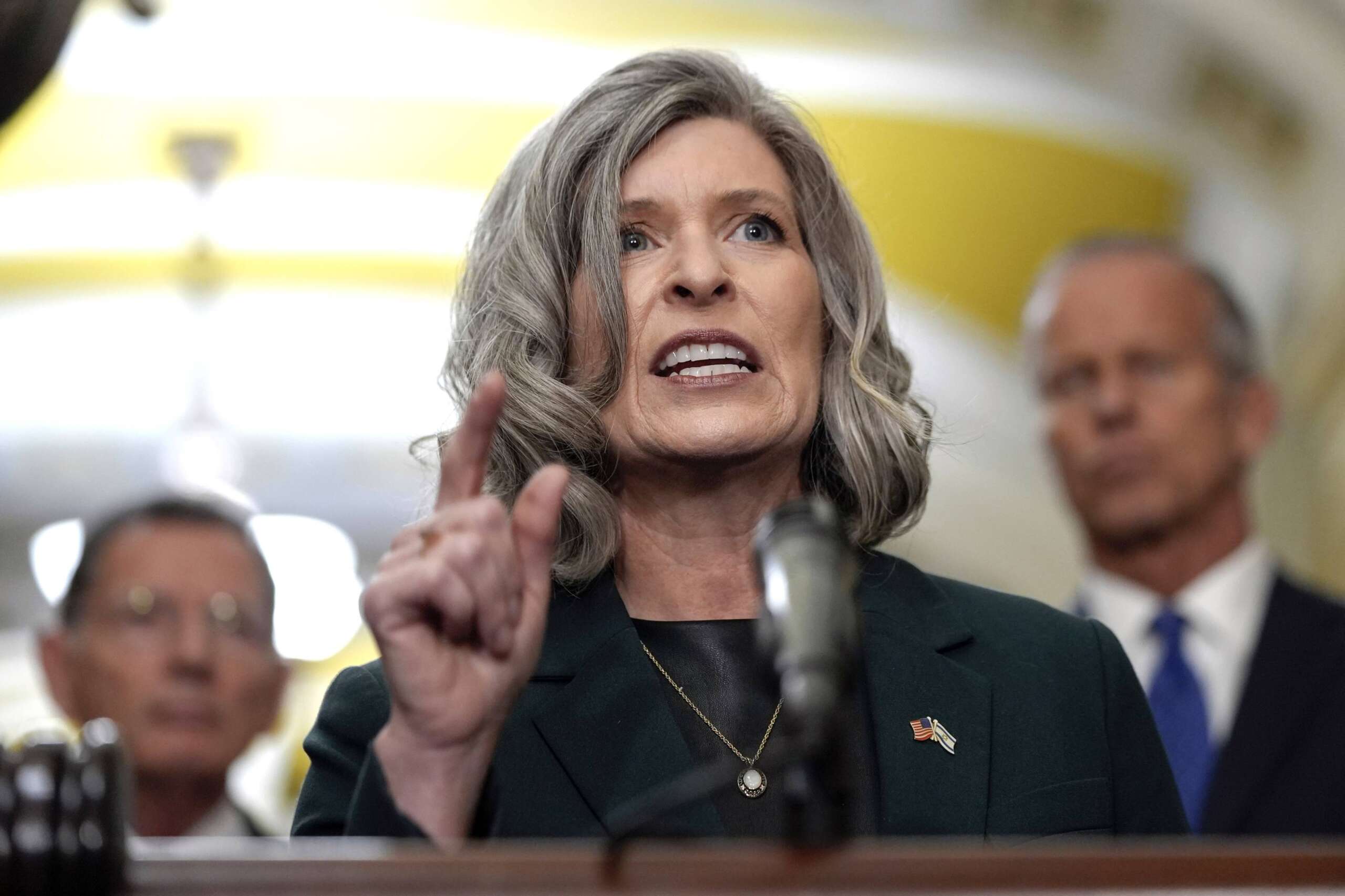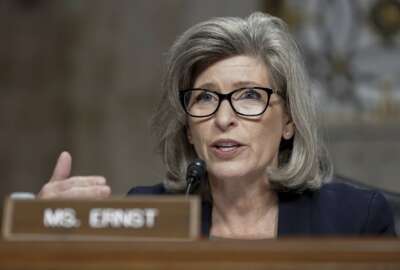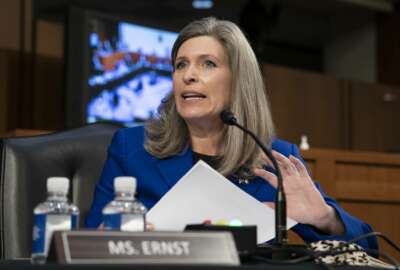Sen. Ernst bill would monitor federal employee computer use
Sen. Joni Ernst's (R-Iowa) bills would move at least 30% of all SBA HQ employees out of the DC area, while Rep. Barry Loudermilk tries the MERIT Act again.
Republican lawmakers are taking aim at where federal employees work, how well they work and what it takes to fire them.
Sen. Joni Ernst (R-Iowa) and Rep. Barry Loudermilk (R-Ga.) introduced or plan to introduce several bills that would impact federal employees in multiple ways.

Ernst, the chairwoman of the Senate’s Department of Government Efficiency (DOGE) caucus, would move at least 30% of all employees at the Small Business Administration out of Washington, D.C. and into field offices.
The Returning SBA to 5 Main Street Act, which Fox Business first reported yesterday, would reduce the agency’s office space by the same percentage of employees who would be moved outside of the DC area.
“I can think of no better way to help the SBA connect with the people it serves than to take some of the employees out of Washington and relocate them across the country,” Ernst, who also is the ranking member of the Small Business and Entrepreneurship Committee, told Fox Business in an interview.
Additionally, Ernst introduced the REMOTE Act, which will require agencies to use software to gather data on the adverse impacts of telework in the federal government by monitoring employees’ computer use, requiring agency reports and providing key information for individual performance reviews.
“The bureaucrat class was given an inch during COVID with ‘temporary’ telework, and they have taken a mile at the expense of taxpayers,” said Ernst in a release. “Holding Washington accountable starts with ensuring federal employees aren’t ‘working’ from bubble baths or the golf course on the taxpayer’s dime. It’s past time to transform government agencies, so our veterans, seniors and all Americans receive high-quality care and customer service.”
OMB’s data tells different story
The Office of Management and Budget released an almost 3,000-page telework report to Congress in August on agencies’ varying policies and approaches to where and how federal employees work, as well as federal real estate holdings and plans to improve office space utilization.
In that report, OMB reported that agencies are, on average, exceeding the administration’s 50% in-the-office goal for telework-eligible feds.
Governmentwide, roughly 61% of the work hours that telework-eligible federal employees performed have been in person, according to time and attendance data OMB collected from the 24 CFO Act agencies during two pay periods in May.
It’s unclear how Ernst’s REMOTE Act would differ from what OMB sent earlier this year. There is no House companion at this time and it’s unclear whether the Republicans in the full Senate would have enough votes to pass either of her bills.
Telework remains a hot issues on Capitol Hill. House Oversight and Accountability leaders wrote to all 24 CFO Act agencies earlier this week seeking details on how federal telework and other labor policies have impacted agencies during the Biden administration.
Ernst’s monitor bill contradicts several bills introduced by her colleagues earlier this year that would create new rules around the use of worker surveillance technologies. It would also establish a new division at the Labor Department to regulate workplace surveillance.
Loudermilk’s 4th attempt at MERIT Act
Along with the return to office concerns, a new bill from Loudermilk would change civil service system by “addressing deficiencies in the Civil Service Reform Act of 1978.”
The Modern Employment Reform, Improvement and Transformation (MERIT) Act would address six areas of federal employee oversight, including how long it takes to dismiss poor performers, recouping bonuses and awards and union grievances.
The MERIT Act would, for example, repeal “the special process for taking action against poor performers, which is unnecessarily time consuming, and streamlines the process for removal or suspension of poor performers and bad actors. H.R. 3348 also permits agencies to remove a senior executive from the civil service for performance reasons, rather than merely demoting the individual to a non-Senior Executive Service (SES) position.”
It also would authorize “agencies to order repayment of bonuses and awards when performance or conduct issues are discovered and it is determined the bonus or award would not have been paid had these issues been known at the time.”
Loudermilk introduced a similar bill starting in 2017 and again in 2018 and 2022. Sen. David Perdue (R-Ga.) put forward similar versions in 2018 and 2019.
The bills never made it out of committee.
Additionally, the Republican Study Committee, in a 2024 budget proposal, included Loudermilk’s bill.
Copyright © 2025 Federal News Network. All rights reserved. This website is not intended for users located within the European Economic Area.
Jason Miller is executive editor of Federal News Network and directs news coverage on the people, policy and programs of the federal government.
Follow @jmillerWFED







